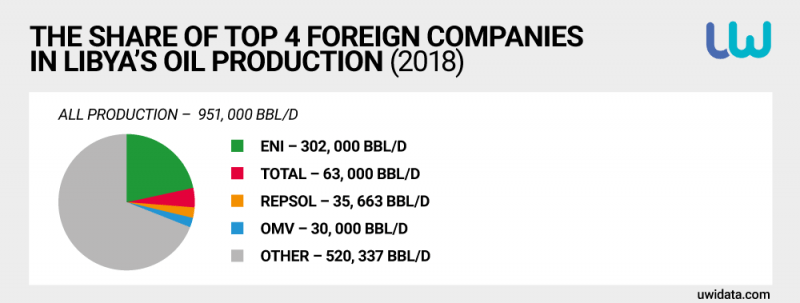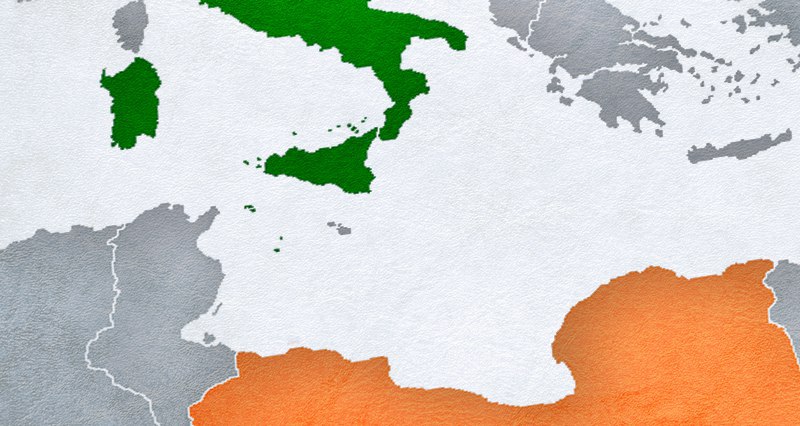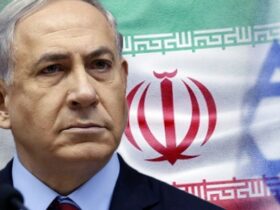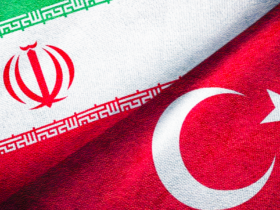On July 7, Italian Defense Minister Lorenzo Guerini arrived in Ankara to discuss defensive cooperation and the situation in Libya with his Turkish counterpart Hulusi Akar. This visit will be the second of a high-level Italian representative to Ankara related to the situation in Libya.
On June 19, Turkish Foreign Minister Mevlüt Çavuşoğlu said that Turkey and Italy will cooperate to ensure a stable peace and a result-oriented political process in Libya. Speaking at a press conference with Italian Foreign Minister Luigi Di Mayo in Ankara, Çavuşoğlu also noted that Turkey expressed its desire to cooperate with Italy in meeting Libya’s energy needs.
According to Çavuşoğlu, Ankara and Rome can also cooperate in the Eastern Mediterranean, where Turkey and Greece have disagreements over energy resources.
In turn, Luigi Di Mayo called Turkey a ” fundamental partner”.
“Fourth Shore”
For geographical and historical reasons, Italy has always perceived Libya as an area of special interest. Libya is located strictly to the south of the Italian coast. Since the Punic Wars, the Apennine Peninsula and the former possessions of Carthage (centered in present-day Tunisia and Tripolitania) have shared the same geopolitical coordinates.
On October 3, 1911 Italy attacked Tripoli on the pretext of liberating Libya from Turkish rule. However, Italy achieved control over Tripoli, Cyrenaica and Fezzan after the Fascists led by Benito Mussolini came to power. In 1934, Cyrenaica, Tripolitania and Fezzan were united into a single colony of Italian Livia – the result formed the borders that the already independent Libya had inherited.
In 1939, Mussolini called the coasts of Libya the Fourth Coast (Quarta Sponda) of Italy. This expression best explains the current special attitude of Italy to this country – a priority area of foreign policy, which has the most direct relation to the security of the country.
One of Italy’s top priorities in Libya is the energy sector. The Italian company ENI has been actively working in the country since 1959. It is indicative that ENI managed to save its concessions in Libya after Muammar Gaddafi was overthrown in 2011. The main conductor of the idea to overthrow the Libyan leader in Europe was France. However, Italy quickly joined the NATO attack against Libya, supporting the rebels.
Former Italian Prime-minister Silvio Berlusconi and Muammar Gaddafi signed the “Treaty of Friendship, Partnership and Cooperation” in 2008. At that time, Italy pledged to pay $5 billion to Libya as the compensation for the occupation of Libya. However, after 2011, Rome suspended the treaty.
Today, ENI continues to be the leading foreign energy company operating in Libya. In 2018 Eni production in Libya amounted to 302,000 barrels per day, and in 2019 – 291,000 barrels per day. ENI has 11 licenses for oil production in Libya.

ENI produces most of the gas in Libya, which is transported to Italy via the Green Stream pipeline (8 billion cubic metres per year. Libyan gas accounts for 8% of the Italian market. Italy is also the first investor in Libya and the first market for Libyan exports (18% of the total).
Among other interests in Libya, Italy wants to ensure strategic security on its southern borders and to stop the flow of migrants coming from Africa through Libya.
We should not forget that the Government of National Accord (GNA) of Fayez al-Sarraj came to Tripoli in March 2016 on an Italian naval vessel. Rome perceives the GNA mostly as an instrument to maintain its influence in the former colony.
Italy’s military presence
In 2016, Italy deployed the so-called “Task Force Hippocrates” in Misrata. Formally, the purpose of the operation was to deploy a field hospital to fight ISIS. However, the mission includes more than military doctors. “The Task Force Hippocrates as part of the bilateral Assistance and Support Mission in Libya (MIASIT), deployed also a component of command / control and logistical operation in Misrata as well as a health component (field hospital).
The Italian military mission in Libya now has 400 personnel. Brigadier General Alessio Cavicchioli from the elite unit of the Italian army – 4th Ranger Alpine Paratroopers Regiment is the head of the mission.
Command headquarters are located in the port of Tripoli in order to support, upon request of local authorities, the Coast Guard and Libyan Navy’s activities. The hospital is in Misrata.
According to the commander of the Italian military mission in Libya, it maintains close relations with the GNA security agencies.
“We deal with the Libyan Ministry of Defense and with the Army, Navy and Air Force Chiefs of Staff. Our analyzes, given the rather fluid situation, refer to the Italian Ministry of Defense” Cavicchioli said.
He also noted that “Almost all the Command of Tripoli comes from the Fourth Regiment Alpine Paratroopers Ranger”. The Italian embassy in Tripoli is guarded by the Italian Carabinieri forces.The 7th Bersaglieri Regiment and the Savoia Cavalleria regiment (3rd) are in Misrata.
“We are able to respond 360 degrees to every training requirement that is required of us. We provide skills for training on the control of naval areas, for riot control operations, we have experts in explosives, dog units, a group of carabinieri, we train the platoon commanders and in the long run also officers some of whom complete the course in Italy,” Cavicchioli said of his work with GNA structures in Libya.
In July 2019, Italy’s Ambassador to Libya, Giuseppe Buccino, said that GNA fighters are being treated in Italy.
On June 18, in accordance with earlier agreements, Italy sent a group of military advisers and a demining detachment to help engineers of the Army of the Government of National Accord in the clearance of mines and IEDs on the southern outskirts of Tripoli.
It was Italy that had long led the EU Sophia operation to stop the boats of migrants travelling from Libya to Europe. Until October 2020, representatives of Italy will lead another EU operation – IRINI – aimed at provision of UN arms embargo.
In addition to Italy’s participation in the European naval operation IRINI off the coast of Libya, Rome has its own operation “Safe Sea” (Mare Sicuro), launched back on March 12, 2015. According to the mandate of the operation, up to 6 warships and support vessels of the Italian Navy, which support the Coast Guard of Libya, may operate in Libyan territorial waters.
Italy does not balk at cooperating with questionable persons like Abd al-Rahman “Bija” Milad, the head of Libya’s infamous Zawiyah coastguard. The UN accuses him of “the sinking of migrant boats using firearms”.
In November 2019, a drone belonging to the Italian Air Force was shot down in the sky over Libya. Just a couple of days earlier, on November 20, the Libyan National Army shot down another Italian drone – an MQ-9A Predator B – near the town of Tarhuna.
Oggi è precipitato sul territorio libico un #Predator, velivolo a pilotaggio remoto dell' #AeronauticaMilitare che stava svolgendo una missione a supporto dell'operazione Mare Sicuro. Sono in corso approfondimenti per accertare le cause dell'evento#UnaForzaperilPaese pic.twitter.com/WBMyvH1a0z
— Forze Armate StatoMaggioreDifesa (@SM_Difesa) November 20, 2019
Italy does not officially recognize its participation in the war in Libya. However, the actions of the Italian mission indicate that it provides consulting, training and intelligence support to the GNA force units.
Italy has not yet decided to expand its military presence in Libya, although the GNA has stated that it has made such a request to Rome.
In an interview with Yeni Şafak newspaper in February, Sarraj said that the GNA applied for military assistance from the “United States, Britain, Italy and Turkey”. ad that “Only Turkey responded positively to our call for help”.
The power of diplomacy and intelligence
On June 10, Italian Deputy Foreign Minister Marina Sereni made a statement to the media, stressing that “the priority in Libya is to achieve a ceasefire”, and noting that diplomacy requires negotiations with all parties.
She noted that Italy is the only country that has a fully functioning embassy in Libya, which means “no one has more connections and knowledge about the situation than we do. Libya is much more than a country divided between Sarraj and Haftar; in Tripoli, as in the East of the country and in other regions, there are many participants that have to be taken into account.”
According to her, “Italy can act in coordination with Europe as a reliable negotiator in all areas to give the Libyans the floor. There is no certainty that the true interests and aspirations of the Libyan people will intersect with the geopolitical view of Turkey or Russia”.
It is worth noting that in addition to the embassy in Tripoli, Italy has had a consulate in Tobruk since 2017. Thus, Rome has secured a diplomatic representation in both centers of power in Libya.
On May 16, 2020, General Giovanni Caravelli was appointed head of Italian foreign intelligence – the Agenzia Informazioni e Sicurezza Esterna (AISE).
As noted by journalist Vincenzo Nigro from the Italian news outlet La Repubblica “In Libya [General] Caravelli enjoys direct contacts with President Sarraj, Minister of Interior Fathi Bashagha, but also General Khalifa Hafter in the east of the country”.
As noted by the Italian media – the new head of Italian intelligence maintained contact with General Haftar, even at moments when he was actively attacking Tripoli. Moreover, it was Caravelli who contributed to the organization of Italy’s Minister of Interior Marco Minniti to Benghazi in September 2017. At the same time, the Italian media note that the general has a working relationship with Turkish intelligence.
The appointment of such a figure as director of intelligence shows that Libya plays a crucial role in Italian foreign policy. Rome will actively use intelligence tools to guarantee its interests in this country. The AISE is considered to have an extensive intelligence network in Libya. However, despite the support to the GNA, Italy, unlike Turkey or Qatar, considers it important to cooperate with Haftar.
During his visits to Italy, Haftar met with government officials, including AISE, as well as with representatives of ENI.
Like Paris, Rome claims to be a mediator for the Libyan crisis, trying first of all to secure its geopolitical and geoeconomic interests. As in the case of France, all previous attempts by Italy to reconcile the parties to the conflict in Libya have failed. However, high level representatives of Rome periodically visit both Benghazi and Tripoli.
For example, in January 2020, Italy tried to organize a meeting of Haftar and Sarraj in Rome. The latter, however, refused. In February, Italian Foreign Minister Luigi di Mayo met with General Haftar in Benghazi.
In May 2020, Luigi Di Maio supported a plan to reorganize Libya’s state structure and reconciliation, which was put forward by Aguila Saleh, Speaker of the Tobruk-based House of Representatives (HOR). According to Di Maio Saleh could have visited Italy “as soon as possible”, but now he is under EU sanctions.
Italy, as follows from Marina Sereni’s statement, is distrustful of both Russian and Turkish presence in Libya. During the Munich conference on security in Libya, Luigi Di Mayo made a proposal to hold the next conference on Libya in Italy. However, that did not happen.
At the same time, we must not forget that Rome has access to individual cities and tribes in Libya outside the GNA and the Tobruk-based Government.
As the Institut Français des Relations Internationales (Ifri) notes “Rome engaged a patient strategy of “mending” with the two main national actors and with a plethora of local players, tribes, municipalities, city-states, and militias struggling in the quest for power”.
Thus, in December 2016, talks were held in Italy between representatives of Zintan and Misrata. At the same time, Zintan’s brigades refused to support Haftar’s declared attack on Tripoli, which collapsed as a result. In April 2017, Italy invited 60 tribal leaders from the Tuareg, Tuba and Arab tribes of southern Libya to Rome, which resulted in the signing of an agreement to stabilize Libya’s southern borders.
Relations with other external players
On the Libyan issue, Italy is actively engaged with all external players, including France, Turkey, Qatar, Russia, the United States, Egypt and the UAE.
In 2019, the European media declared a “real war for influence between France and Italy” in Libya as an important component of the conflict between the GNA and the LNA. In 2020 Paris and Rome lost the roles of main external players to Turkey, Russia and UAE.
Now Rome is clearly dissatisfied with the fact that it plays a smaller role than Turkey in Libyan affairs. However, intensive diplomatic contacts are ongoing between the countries.
Since May, diplomats from Italy and France (the European country most closely aligned with Haftar) have been working together actively. Along with France, the US and Germany, Italy is in favor of an early truce in Libya, which will stop the offensive of the GNA army and give Khalifa Haftar necessary respite.
At the same time, there is further basis for disagreement with France – competition for energy resources between Total and ENI remains.
The Italian policy towards Libya could be called a strategic balancing strategy of both external and internal players.
Italy supports the GNA, but unlike Qatar and Turkey, other allies of Tripoli are also in contact with Haftar. At the same time, the intensity of these contacts depends on Haftar’s success on the battlefield. It is no coincidence that Italy had active contacts with the general in January-February, when the LNA was at its peak form. Now, the failed Haftar is not as interesting for Rome as it used to be.
The interests of Italy and its allies Turkey and Qatar that lie behind supporting the GNA also largely do not coincide. For Qatar, and partly for Turkey, support of the GNA is based on ideological factors – the support of the Muslim Brotherhood as a force within the Islamic world. Italy supports Sarraj only for realistic reasons.
For Turkey, the crisis in Libya is largely related to the struggle for resources of the Eastern Mediterranean – for itself and the Turkish Republic of Northern Cyprus. Italy is in agreement with Israel, Egypt, South Cyprus, France and Greece on this issue, and is challenging Turkey’s rights.
The main reason is that ENI is actively working on the Cyprus shelf. Moreover, Italy counts on supplying gas via the EastMed gas pipeline from Israel and Cyprus offshores, which is to pass through the zone that Turkey and Libya shared with each other in their maritime agreement in November 2019.
Therefore, in December 2019, Italy and France together with the Greeks conducted exercises in the Eastern Mediterranean against the background of escalation with Turkey. In January 2020, an agreement was signed in Athens to build the EastMed gas pipeline. The heads of governments of Israel, Greece and Cyprus, as well as representatives of Italy and the European Union, took part in the ceremony. In February 2020, Di Mayo and Haftar discussed the protection of the maritime borders between Libya and Italy.
Thus, although Italy is Turkey’s de facto ally in Libya, Turkey’s interests do not coincide with those of Italy, which may give rise to disagreements. In addition, Italy is very sensitive to security issues. Information on the involvement of Syrian fighters on the side of the GNA in the Libyan war may create a breeding ground for nervousness in relations with Turkey. Finally, Ankara’s plans to participate in the development of oil fields could lead Rome to regard Turkey as a geopolitical competitor.
In any case, if Rome tries to balance out Turkey’s increased role, it is likely to do so by establishing cooperation with Paris and Washington.
Such sentiments are at least characteristic of the Italian media. Thus, in June 2020, the Repubblica called the joint exercises of Italy, France and the United States off the coast of Libya “the clearest message for those who want to get their hands on Libya” and “a naval message to Turkey”.
The voices of those who advocate a reassessment of the role that Rome is currently playing in Libya can be heard among experts.
In particular, the Italian expert, Marc Pierini, in a material for Carnegie Europe on July 2, states that European countries, including France and Italy, should act together in Libya to not “leave Libya’s future in the hands of Russia and Turkey”.
Previously, Nathalie Tocci, director of Istituto Affari Internazionali and former special adviser to former European High Representative for Foreign Affairs Federica Mogherini expressed similar ideas in a Politico Europe article calling for European “boots on the ground” in Libya.
Stefano Marcuzzi , another Carnegie Europe researcher, also called for “boots on the ground” to take the initiative in Libya away from Russia and Turkey in Libya.
On the other hand, as Alessandro Orsini, Director of the Observatory on International Security at Luiss University of Rome, notes that “Italy is at risk of ending up with a war in Libya that could involve three powers, Russia, Turkey and Egypt, with which it has a strategic interest in having excellent relations”. Italian diplomacy according to him should therefore “work to prevent the Egyptian and Turkish armies from clashing in Libya” and “Italy will have to cohabit with Turkey in Tripolitania”.
Whatever decision Italian leadership makes – be it to join the imperialist camp of US and France frightened by the rise of roles of non-Western actors in the Libyan conflict, or work to support reconciliation between Turkey, Egypt and Russia – it will undoubtedly try to strengthen its position in Libya. The first choice will lead Rome close to the forces of liberal and Western-centered capitalist hegemony, the latter to the camp of those who at least want to challenge that hegemony and have the potential to propose a new counter hegemonic world vision (despite the fact that they – first of all Turkey and Russia – support different sides on the ground in Libya).
Given the certain flexibility of Rome, one should expect new open and secret contacts with all parties to the conflict. At the very least, Italy’s advantage is that it is limited only by its own interests, not by personal or ideological phobias.

















Leave a Reply